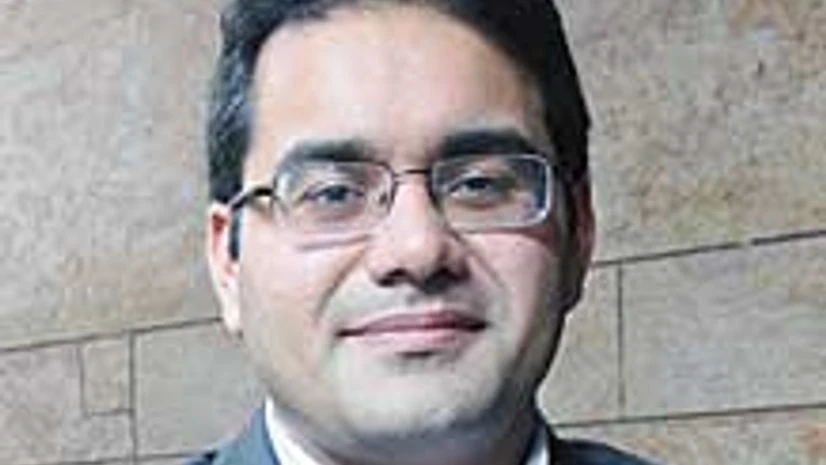Window-shopping for a couple of hours at a luxury shopping mall is cool. But if it's for five hours a day, it may well become a boring ordeal. And, if you need to do it mandatorily for a few weekends, it could turn out to be the toughest thing you have done. One would perhaps never imagine the CEO of a leading company doing that, let alone find time for it.
But Kunal Bahl, co-founder and CEO of Snapdeal, the e-commerce company that started from Bahl's bedroom a little over five years ago, was doing exactly that for months. Bahl would go to DLF Emporio, a luxury mall in south Delhi, every weekend and spend hours without buying anything - he claims luxury does not go well with him.
WIDE RANGEAlso Read |
|
It wasn't just Delhi. Bahl travelled to Mumbai on three weekends to roam around the Palladium mall, the destination for luxury brands from across the world. Bahl's mall hopping did not end there. He then wanted to taste the flavour of luxury shopping in Bengaluru, at UB City.
After a couple of weekends more of observing shoppers buy luxury items, Bahl was back to familiar domain: his 200-sq ft cabin in Delhi from where he strategises and plans his next move. But, by this time, his aspirations had taken a luxurious turn that Snapdeal had to ride on.
"I knew luxury needed to be 'massified', in terms of reach. But I needed to understand the real consumers, and the traditional retail model that is the only access to luxury products as of now," says he.
The 30-something CEO's fascination with malls had a very practical purpose. What he did during his visits was watch shoppers who stepped into a store and make mental notes of their buying behaviour. "Who, what, how much were the questions I needed to find answers to. And, probably why. Well, it took me all these weekends that I spent in the shopping malls, paving the path for why Snapdeal should acquire exclusively.com (formerly exclusively.in)," says Bahl.
The findings, he adds, were amusing. "People who buy there are not all richie-riches. Rather, I was surprised to see that some of the real buyers actually drove in hatchbacks. It's not about money. It's about aspiration, the desire to have at least one luxury product that he/she wants to use for a special occasion, maybe just once in a long time," says Bahl.
|
FLUSH WITH CASH Fundings received by the company |
|
Thus came the idea of establishing India's first online luxury mall. "It's not the price that matters to the aspiring buyers. Rather what matters is the availability, accessibility," he adds. What Bahl wants to do is to make a Tarun Tahiliani kurta or a Rohit Bal lehenga available to a Bathinda girl or a Bhavnagar guy who dreams of getting married in such outfits.
A growing market
The acquisition of exclusively.com brings luxury as an opportunity that was untapped by e-commerce players so far. "Exclusively.com complements our existing line of products; it does not compete. It fits well into our overall strategy of focusing on fashion as a category. Exclusively.com will bring in a select range of high-end products by more than 100 designers and brands across the world. Luxury as a category needs to be massified, so that it reaches as many consumers as possible," adds Bahl.
While exclusively.com will be fully owned by Snapdeal, Bahl and his team have taken a conscious decision to retain the brand. It will be sold as an independent line and looked after by its founders.
By the end of this year, Bahl believes exclusively.com, or its luxury range, will be worth $100 million (Rs 620 crore), and within three years, a $1-billion business for Snapdeal. "The luxury goods market in India is estimated at $15-16 billion, while an online model has almost no presence. We want to establish India's first online luxury mall," he adds.
But, unlike Snapdeal, exclusively.com will not be in the price game, thus products will not be sold at a discount. There may be deals on special occasions, but that is yet to be firmed up. "The idea is to make luxury products available at the door steps of our existing 40 million users, which would grow further. And, most importantly, we are bringing luxury products to smaller cities - Tier-I and beyond where luxury is way too luxurious to access," says Bahl.
Growth plans
Over the next six months, Snapdeal will add more foreign brands and designers to the brand, especially those with some exposure in India or to Indian consumers. Bahl also wants Snapdeal and exclusively.com to provide a platform for young and independent designers who may otherwise not have the resources to buy physical retail space to showcase their talent
Bahl is also looking at a distinctly different delivery model for its luxury brands. A Rohit Bal lehenga needs to be delivered in a manner befitting designer wear, he says. The company, which is competing head-on with Flipkart and Amazon India, is looking at customisation and perfect packaging so that the consumer gets a sense of luxury while receiving the product.
That should be a good fit for Snapdeal's strategy to target around $10-billion in gross merchandise value by the end of 2015, from $3 billion currently. Flipkart, meanwhile, is hoping to double its merchandise value to $8 billion by then.

)
